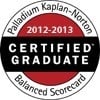Challenges of Multi-Channel Marketing Execution and Measurement
It’s tough out there. Fukushima is leaking, the fish are glowing (see below). The Euro is deflating like a popped balloon. The banks are broke, and the financial crisis just rolls on and on. Retail sales are down, in Spain, for the past 22 months in a row. Sounds pretty grim.

Image Courtesy Creative Commons possibly from Sheldon.
Fortunately, the same gigantic sense and respond machine that feeds the gloom cycle also provides a way to shine when it comes to Marketing.
Many ships have run aground on the great Internet marketing sea.
Is Inbound Marketing the right marketing framework for you business. Take our Inbound Marketing Fit Quiz and find out now.
Fortunately, as a Hubspot Certified Inbound Marketing and Sales Agency, we’ve learned from those mishaps. The internet, is, if anything, a communications machine, with multiple channels, and the trick to using them all together effectively is called Multi Channel Marketing. How do you master Multi Channel Marketing? Most importantly, how do you measure whether you have mastered Multi Channel Marketing.
Definition of Multichannel Marketing
Multi-channel marketing mixes many distribution and promotional channels into a single, unified strategy to attract customers. Using this approach efficiently and effectively communicates a product or service’s value using the unique strengths of specific marketing channels. These marketing channels include, but are not limited to, email, direct mail, websites, social media, display adverts, and/or a retail storefront. Marketers may use several communication and distribution channels so customers can procure products in their preferred way – for example, a business may sell products at a specific brick-and-mortar retailer while maintaining their own online store.
What are the Benefits of Multi-Channel Marketing?
Marketers have used multi-channel marketing methods for decades, with one study claiming that multi-channel customers spend two to five times more than single-channel customers. Let’s illustrate why multi-channel marketing strategies deserve this reputation.
Achieve Expanded Reach
When marketers expand their marketing efforts to new channels, they increase their reach among members of their potential audience. Many customers interact on a limited number of channels – so by expanding your marketing campaigns to encompass more channels, it’s possible to find customers with untapped purchasing potential.
Increased Engagement
An increased number of channels often translates into a higher number of potential customer touchpoints. This doesn’t only give consumers more opportunities to engage with brands, it also opens up new channels of communication between the organization and the customer.
Reach Consumers on Their Preferred Channel
Consumers interact with a lot of different sources of media every day – instead of waiting for customers to find their brand, marketers need to uncover which channels these consumers prefer to use and meet them where they are. So, a customer who has a cursory interest in your product or service may want to receive expository advertisements on television, while a customer that is almost ready to purchase may want to read detailed reviews about your brand online.
Combined Channels are More Effective
When marketers create a strategy that ties together campaigns from multiple media channels, it creates opportunities for more impactful messages that are mindful of the customer journey. It’s possible to mix and match a variety of channels and messages, but let’s take a closer look at two proven examples of channels that can be combined for more effective campaigns:
- Social Media & Television – Nielsen Research found that campaigns with touchpoints across both television and Facebook experienced a 12 point lift in brand recall compared to campaigns that took place on a single channel. This is because social media helps reinforce marketing messages by reaching potential customers on a frequent, highly targeted basis.
- Radio & Television – Radio adverts are proven to help consumers remember television advertisements. When these two channels are combined, brand recall for television advertisements has been shown to improve by 35 percent. It is theorized that this effect occurs because it is very cost-effective to frequently expose consumers to short radio advertisements. Then, brands can solidify their image through more impactful and engaging television commercials.
The Many Challenges of Multi-Channel Marketing
While there are many benefits to using a multi-channel marketing strategy, especially when combined with big data, it is not ideal for every organization. Before you implement this strategy in your organization, you should be aware of and plan how to overcome the following challenges.
Efficient Management
More marketing channels demand more management – so marketers need to be ready to allot additional time, resources, and money to create strategies that are perfect for each channel.
Overcoming Organizational Challenges
In addition to the challenges of working with many different marketing and communication channels, many organizations have heavily siloed departments where there is minimal data sharing and cross-communication. While other teams, like finance or operations, may understand some aspects of consumer behavior better than marketing does, it may be difficult to determine the best ways to manage your campaign without their combined input. The CFO, however, is always going to want marketing to prove the ROI of every penny spent.
Proper Marketing Attribution
The importance of accurate marketing attribution becomes perfectly clear when organizations embark on a multi-channel marketing strategy. A growing number of channels makes it increasingly difficult to determine which message triggered a specific response from a customer.
Which Marketing Attribution Have You Chosen?
Many marketers have already adopted some kind of attribution model – a recent report found that 68 percent of marketers with an attribution strategy used Media Mix Modeling (MMM) while 49 percent used Multi-Touch Attribution (MTA). However, these models do not provide a holistic view across both online and offline campaigns – and MMM, in particular, is not suited for timely, future-facing marketing analytics that can be used to adjust and optimize active campaigns. Instead, marketers need to focus on attribution models (such as Unified Marketing Measurement) that provide timely insights on impressions and engagement across both online and offline channels.
Leveraging Marketing Analytics
Marketing teams believe they have a firm grip on analytics – however, the practice of creating a multi-channel marketing campaign can shine a light on improper or ineffective tactics. When creating multi-channel campaigns, 37 percent of marketers found it challenging to leverage customer data, and 55 percent found it difficult to add customer data to existing customer profiles.
Importance of Data Quality
Additionally, 65 percent of marketers are concerned with data quality. Discovering these snags would certainly come as a rude awakening to any team that invested the time and resources necessary to bring a multi-channel campaign to market.
The data has suggested that these challenges arise due to a lack of expertise in the organization. 56 percent of marketers reported that it was at least moderately challenging to fill roles related to marketing analytics, with 18 percent claiming it was their most difficult challenge of 2019.
Get What Is Inbound Sales In A Unified Sales And Marketing System [Ebook]
Train Up Your Marketing Team in Data Analytics
Marketers need to either undergo training to develop these skills or use an analytics platform that makes data analysis much simpler for the uninitiated.
Regardless of your team's experience, knowing and understanding the following 10 Multi-channel marketing strategies, tactics and tips can help you succeed. no what your marketing campaign goal might be.
We have developed and implemented the following Shortcuts to Multi Channel Marketing:
- Deep analysis of SEO, including all on-page and off-page SEO elements to Get Found!
- Designing close links between all marketing channels including:
- Web
- Mobile
- Printed
- In-Store
- Event (Trade Shows)
- SMS
- Social Media
- Apps
- Graphic Design, just enough, but not too much.
- Profound knowledge of specific industry buying signals.
- Reducing friction between the marketing and sales execution process.
- Gamification where appropriate.
- Value based messaging:
For the consumer
For the vendor
For the manufacturer - Edutainment as a central platform and methodology. Have seen Project Management training delivered this way that was great!
- Process driven.
- High speed, organic analysis of all channels with alerts using a state-of-the-art marketing intelligence system, coupled with predictive analytics. This is how you know how you're doing.
Bonus Round: It should be fun to do this.
If you would like to find out more, you might enjoy our 9 Step Guide to Multi Channel Inbound Marketing or our 10 Step Guide to Multi Channel Marketing, both of which provide guidance on Multi Channel Marketing.
Online Inbound Marketing Assessment
In addition to our guides, we offer a FREE Inbound Marketing Assessment, which will help quickly focus on what you have to do to succeed with multi-channel marketing.
People Who Read This Also Read:
- Get What Is Inbound Marketing Used For By SAP Consultancies [eBook]
- Get What Is Inbound Sales In A Unified Sales And Marketing System [Ebook]
- Why 10,000 Retailers using SAP Need Inbound Now!
- What's Your E-Mail Marketing Strategy?[Tutorial]
- Top 10 Benefits for Financial Analysis in the Latest SAP EP4
- 8 Secrets to SAP Enabled Spend Performance Management
About SAP BW Consulting, Inc.
SAP BW Consulting, Inc. helps businesses unlock shareholder value through data-driven decision-making. We specialize in SAP Business Intelligence (BI) solutions, including SAP Business Warehouse (BW) implementation, SAP ABAP development, and project management. Our expertise also extends to Salesforce and HubSpot integrations, helping businesses manage complex environments.
Additionally, we offer Balanced Scorecard consulting to optimize strategic planning.
Unlock the full potential of your data and drive value. Book a meeting with us today.
Thanks



